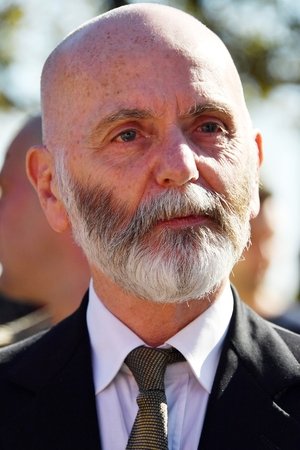Renaud Camus
Renaud Camus (born Jean Renaud Gabriel Camus on 10 August 1946) is a French novelist, conspiracy theorist, and white nationalist writer. He is the inventor of the "Great Replacement", a far-right conspiracy theory that claims that a "global elite" is colluding against the white population of Europe to replace them with non-European peoples. Camus's "Great Replacement" theory has been translated on far-right websites and adopted by far-right groups to reinforce the white genocide conspiracy theory. Camus has repeatedly condemned and publicly disavowed violent acts which have been perpetrated by far-right terrorists stemming from his theories. Jean Renaud Gabriel Camus was born on 10 August 1946 in Chamalières, Auvergne, a rural town in central France. Raised in a bourgeois family, he is the son of Léon Camus, an entrepreneur, and Catherine Gourdiat, a lawyer. His parents removed him from their will after he revealed his homosexuality. At 21, then a socialist, he participated in pro-LGBT marches during the May 1968 events in Paris. Camus earned a baccalauréat in philosophy in Clermont-Ferrand, Auvergne, in 1963. He then spent a year at a non-university college, St Clare's, Oxford (1965–1966). He earned a bachelor in French literature at the Sorbonne University in Paris (1969), a master in philosophy at the Paris Institute of Political Studies (1970), and two Master of Advanced Studies (DES) in political science (1970) and history of law (1971) at the University Panthéon-Assas. He taught French literature at the Hendrix College in Conway, Arkansas from 1971 to 1972, then was redactor in political science for the encyclopedia publisher Grolier from 1972 to 1976. He was also a professional reader and literature advisor at French book publisher Denoël from 1970 to 1976. After settling back in Paris in 1978, Camus quickly began to circulate among writers and artists the likes of Roland Barthes, Andy Warhol, or Gilbert & George. Known exclusively as a novelist and poet until the late 1990s, Camus received the Prix Fénéon in 1977 for his novel Échange, and in 1996 the Prix Amic from the Académie Française for his previous novels and elegies. Called retrospectively by some English-language media an "edgy gay writer", Camus published in 1979 Tricks, a "chronicle" consisting of descriptions of homosexual encounters in France and elsewhere, with a preface by philosopher Roland Barthes; it remains Camus's most translated work. Tricks and Buena Vista Park, published in 1980, were deemed influential in the LGBT community at that time. Camus was also a columnist for the French gay magazine Gai Pied. This period of Camus's life has led American magazine The Nation to label him a "gay icon" who "became the ideologue of white supremacy," although Camus had rejected the concept of "homosexual writer" by 1982. ... Source: Article "Renaud Camus" from Wikipedia in English, licensed under CC-BY-SA 3.0.
Known For
Credits
- 2024 ·White Power: Inside Europe's Far-Right Movementas Self (archive footage)
- 2022 ·Le Grand remplacement : histoire d'une idée mortifèreas Self
- 1975 ·Apostrophesas Self



